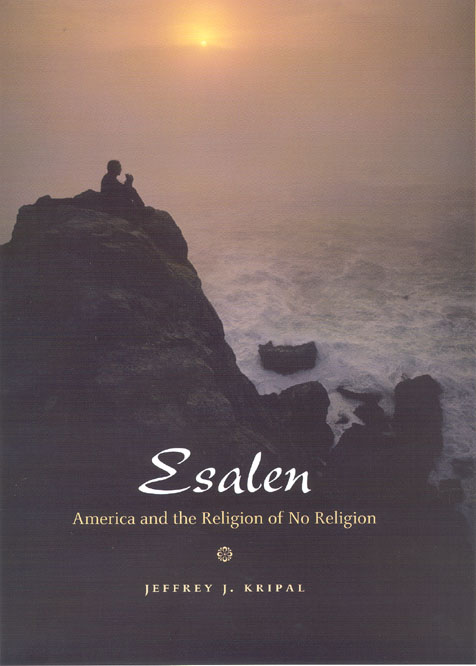Jeffrey Kripal on The Religion of No Religion
 Jeffrey Kripal has an interesting essay in the current Chronicle of Higher Education touching on some of the topics of his new book Esalen: America and the Religion of No Religion. Among other things, the essay examines the intellectual and spiritual roots of the Esalen Institute—the world-famous center for alternative and experiential education that is the focus of Kripal’s book.
Jeffrey Kripal has an interesting essay in the current Chronicle of Higher Education touching on some of the topics of his new book Esalen: America and the Religion of No Religion. Among other things, the essay examines the intellectual and spiritual roots of the Esalen Institute—the world-famous center for alternative and experiential education that is the focus of Kripal’s book.
Kripal points out that the “secular mysticism” cultivated at the institute is a spiritual trend that can be traced deep in the history of American culture—back to nineteenth-century American Transcendentalist Ralph Waldo Emerson. According to Kripal, Emerson was a believer in a “democratic, individualized form of spirituality that is fundamentally open to present and future revelations, not just past ones”; a system of belief which the institute’s founders, Michael Murphy and Richard Price, also embraced in a “secular mysticism that is deeply conversant with democracy, religious pluralism, and modern science.”
The fame of Esalen, however, bloomed in the the 1960s and ’70s when Esalen was made one with American popular culture, becoming more sensational than mystic:
People of all ages come from all over the world to learn, heal, explore, chant, dance, drum, massage, and meditate, and many of them eventually find themselves bathing together in outdoor, cliff-top hot tubs in full view of the sea—swimsuits optional. A parade of colorful characters have written, talked, thought, and sang their way through the Esalen story, people like Henry Miller, Aldous Huxley, Alan Watts, Jack Kerouac, Hunter S. Thompson, Joan Baez, Fritz Perls, Ida Rolf, Mikhail Gorbachev, and Terence McKenna (a modern-day shaman who advocated the use of psychotropic plants), to name just a few.
But, says Kripal, “Esalen’s activist, intellectual, and metaphysical dimensions have struck me as both the most significant and, oddly, the least-known aspects of its story.” As a “research laboratory” for the human potential movement, “Esalen played a catalytic role in gestalt and humanistic psychology in the early 60s, educational reform in the late 60s, the embryonic alternative-medicine movement of the early 70s, and the development of citizen diplomacy with the Soviet Union in the late 70s, 80s, and 90s.” Esalen, for instance, was a sponsor of Boris Yeltsin’s transformative 1989 tour of the United States. The institute has also played an active role in the environmental movement.
And the hot tubs are still there on the cliffs of Big Sur.
To learn more about this fascinating hothouse of contemporary culture read Kripal’s full article online at the Chronicle ‘s Web site, in preparation for the full experience of Esalen: America and the Religion of No Religion. We also have an excerpt from the book.